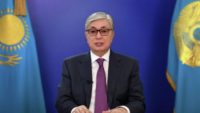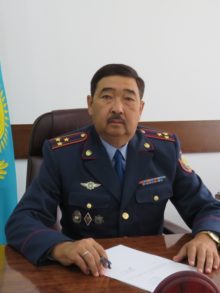- Question: At what age does administrative responsibility come?
Answer: According to Article 65 of the CRKAO, minors are persons who, by the time of committing an administrative offense, turned sixteen, but have not reached the age of eighteen.
- Question: Can minors be subjected to compulsory enforcement in internal affairs bodies?
Answer: The drive is provided for in article 790 of the CRKAO. A drive is made of a natural person or legal representative of a minor who is brought to administrative responsibility for the purpose of suppressing an administrative offense, identifying the person suspected of committing it, drawing up a protocol on an administrative offense when it can not be compiled at the place of committing an administrative offense, ensuring timely and proper consideration of the case and execution of the decision adopted in the case.
- Question: What measures of educational influence can be assigned to a minor?
Answer: According to Article 69 of the Code of Administrative Offenses, the minor can be assigned the following educational measures:
1) clarification of the law;
2) transfer under supervision of parents or persons who replace them, or a specialized state body;
3) the assignment of the obligation to redress the damage caused;
4) restriction of leisure and the establishment of special requirements for the behavior of a minor.
At the same time, several measures of educational influence can be assigned to a minor.
The term of application of the measure of educational influence provided for in subparagraph 4) of the first part of this article shall be set for a period of up to three months.
In case of systematic non-fulfillment by minors of the measures of educational influence provided for in subparagraph 4) of part one of this article, the specialized state body shall submit materials to the court to decide on the cancellation of this measure and to bring the minor to administrative responsibility if the limitation period established by part one of Article 890 of this Code.
- Question: In what cases are minors exempted from administrative responsibility?
Answer: According to Article 68 of the Code of Criminal Procedure of the Republic of Kazakhstan of Administrative Offences , minors who have committed an administrative offense for the first time may be released by a court, body (official) authorized to review cases of administrative violations, from administrative responsibility or from execution of an appointed administrative penalty, .
- Question: Which families fall into the category of disadvantaged?
Answer: According to paragraph 10 of Article 1 of the Law of the Republic of Kazakhstan dated July 9, 2004, No. 591 “On the prevention of juvenile delinquency and the prevention of child neglect and homelessness” in a dysfunctional family is understood as a family where parents or legal representatives of minors do not fulfill their duties for their upbringing, education, maintenance and negatively affect their behavior.
- Question: During what time is the minor considered to be subject to an administrative penalty?
Answer: According to Article 72 of the Code of Criminal Procedure of the Republic of Crimea, a juvenile who is subject to administrative penalty for an administrative offense is considered to be subjected to this penalty within six months from the date of termination of the execution of the decision on imposing an administrative penalty.
- Question: What is the responsibility for selling tobacco and tobacco products to minors?
Answer: According to Article 133 of the CRKAO, sale of tobacco products to persons and persons under the age of eighteen years –
attracts a fine on physical persons at a rate of twenty, on subjects of small business – at a rate of forty, on subjects of average business – at a rate of sixty, on subjects of large business – at a rate of eight monthly calculation indicators.
The action envisaged by part one of this article, committed repeatedly within a year after the imposition of an administrative penalty, –
attracts a fine on physical persons at a rate of forty, on subjects of small business – at a rate of sixty, on subjects of average business – at a rate of eighty, on subjects of large business – at a rate of one hundred sixty monthly settlement indicators, with activity suspension or separate kinds of activity.
- Question: Who is responsible for minor hooliganism committed by a minor?
Answer: According to Article 435 of the Criminal Procedure Code, parents are responsible for the minor hooliganism committed by a minor.
- Question: Is there any responsibility for admission of minors in entertainment facilities at night?
Answer: According to article 442 of the CRKAO, the assumption of finding minors in entertainment establishments without accompanying legal representatives at night (from 22 to 6 am)
attracts a fine for individuals in the amount of thirty, small businesses or non-profit organizations in the amount of forty-five, for medium-sized businesses – at a rate of sixty, for large business entities – at a rate of one hundred monthly calculated indicators.
The action envisaged by part one of this article, committed repeatedly within a year after the imposition of an administrative penalty, –
attracts a fine on individuals in the amount of sixty, small businesses or non-profit organizations in the amount of ninety, for medium-sized businesses – at a rate of one hundred and twenty, for subjects of large business – at a rate of two hundred monthly calculation indicators, with the suspension of activities or certain activities.
- Question: What kind of juvenile is neglected?
Answer: According to clause 6 of Article 1 of the Law of the Republic of Kazakhstan of 9 July 2004 No. 591 “On the prevention of juvenile delinquency and the prevention of child neglect and homelessness”, a minor is neglected, whose behavior is not monitored due to failure to perform or improperly performing the duties of his upbringing, and (or) maintenance by parents or their legal representative, as well as teachers, educators and other employees of an educational, educational and other institution uschestvlyat supervision of minors or as a result of unauthorized leaving his home or organizations engaged in child protection function.











